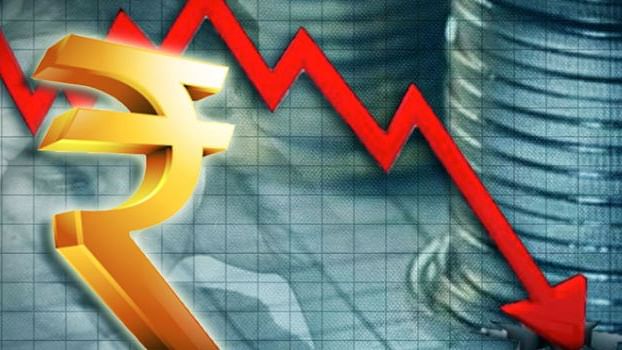Shivaji Sarkar
Heading towards a grave scenario, the Indian economy faces contraction in the current and possibly the next financial year. This follows almost a global pattern of pushing a large chunk of people to extreme poverty, $1.90 a day, as part of an estimated 100 million global new poor projected by the World Bank.
The two months of economic lockdown has caused immense losses. India is slipping into one of the worst recessions. Till now, India had been relatively immune to global recessions. Even in the slowdowns of 1991, 1997 Asian Tigers crisis, or 2008 sub-prime, while the growth rate had dropped, it never turned negative, the way Moody’s or other agencies are now projecting. Even the Fitch projection of 9.5 per cent growth in 2021 has many riders. The economy is to contract for the next two years even after normalisation of functioning.
The real GDP growth has declined from a high of 8.3 per cent in 2016-17 to 4.2 per cent in fiscal 2019-20. Moody’s downgrading India to the lowest investment grade of BAA3 has projected it to contract by 4 per cent in 2020-21, –ie,a minus growth. On this negative figure it projects an 8.7 per cent rise in 2021, ie, less than normal growth. The Fitch sees 5 per cent fall, presenting a grim picture.
Projections are that India may face a Japanese type crash of the 90s. It took Japan ten years to emerge from the market crash and credit crunch. In such a case, Indian GDP may contract by 10 per cent in 2020-21 and by 2.5 per cent in 2021-22, according to Arthur D Little (ADL), an international management consultancy.
The ADL predicts 135 million job losses, 120 million people pushed into poverty and a potential loss of $1 trillion. And, it will not be easy to have the $5 trillion economy, predicts ADL, though it praises Prime Minister NarendraModi’s visionary AtmanirbharBharat campaign. In an online-survey in the last week of May, the Indian Society of Labour and Economics (ISLE) found that the job losses and lower economic growth have given rise to severe inequality. The impact, it predicted, shall last over one year and that “70 per cent of respondents would be batting for greater devolution of power to the states”. The survey called for much more cash transfers.
Remember, economic emancipation is simply not possible if labour is neglected. If the working class is not taken care of, the country is likely to lose the most important lubricant — of their capacity to purchase. The 80 crore people, identified by the government as needing support during the Covid-19 lockdown, have not been integrated into the market, leading to their isolation and abject poverty.
Except for stray words nobody has tried to solve the problem of the marching millions. Poverty, Mahatma Gandhi noted, is the worst from of violence. But an organised way to correct it remains elusive. Worse, ten states have legislated laws that are harshest for the working class — resorting even to 12–hour shifts and giving freedom to employers from adhering to basic wage rules. Unfortunately, no political party or even NITI Ayog type entities have come up with a solution, leave aside a viable one, to address the distress.
RBI reported that the slowdown, even before lockdown, had hit hard the corporate sector as 2,696 firms reported 54.3 per cent fall in their net profit in September 2019 itself as demand weakened and nominal sales contracted. A group of 505 companies in the services sector had an aggregate loss of Rs 53,167 crore; 1706 manufacturing units saw sales decline by 7.7 per cent though profits rose by 17.4 per cent.
Amidst all this, it is least surprising the country slipping into a never-before recession. The government is seized of the matter but it is in a financial crisis. It needs to do a lot but is hamstrung. The revival of the economy as a first step must start with decriminalisation of cash transactions. Cash wholesale and retail transactions can boost demand and speed up trade and manufacturing. Repeated increase of petrol prices is thawing movement, which is further being slowed down by high tolls/fastags. Roads need to be opened for free movement.
In sum, it’s a catch 22 situation for the Government. Pragmatic steps are needed to bolster the economy, pave a fast growth track and inclusive policies for the poor. Prime Minister Modi must deliberate how best his government can salvage the situation.
–INFA
